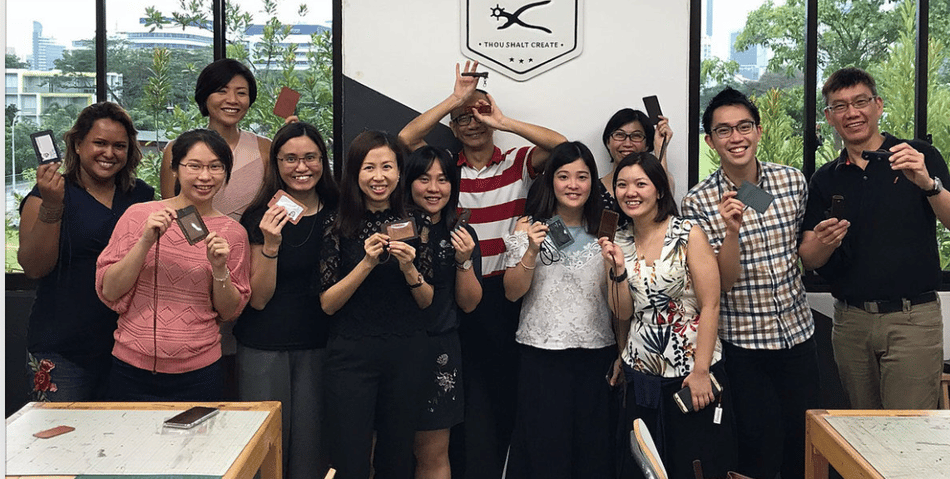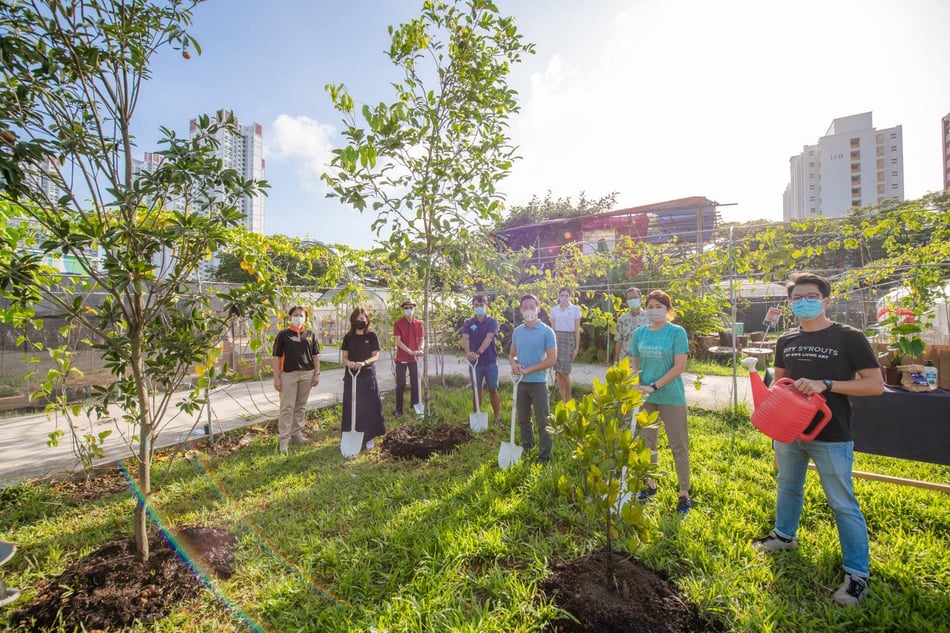
Singapore
SLA has its fair share of challenges adapting to the new norms of working from home (WFH) and transitioning from a “partially digital” organization to a digital-ready one almost overnight. In those circumstances, fostering a sense of belonging and maintaining social cohesion amongst employees proved to be one of the greatest challenges faced.
BELONG — Employee Lifecycle Pulse Survey, Onboarding, Driver and Impact Analysis

The Singapore Land Authority (SLA) is a statutory board formed in 2001. The organization is unique in its role in that it both propagates development and enforces regulatory adherence. SLA operates a vibrant workforce of 500+ employees which is constantly evolving due to retirements and new hires.
The company’s mission is to optimize the use of Singapore’s limited real estate, working towards the vision of “limited land, unlimited space.” To that end, its culture fosters the values of public service – integrity, service, and excellence – side by side with the principles of people-centricity and innovation to drive forward the country’s developmental potential.

"At the Singapore Land Authority, we strive to create an amazing employee experience from the moment our employees enter through our doors. Being able to identify, understand and address the concerns and feedback provided by our employees is therefore a top priority for the HR team,"
Er Chye Har, Director of Human Resources at SLA
At the time when the COVID-19 outbreak happened, SLA was going through a major workplace change. It was renovating its offices to create a more collaborative and productive environment for its employees. COVID-19 hit at the point when the company had managed to complete 50% of the renovations and in just one week, everyone found themselves working from home. It has been said umpteen times that COVID-19 has completely changed the way we work.
Like many companies globally, SLA has its fair share of challenges adapting to the new norms of working from home (WFH) and transitioning from a “partially digital” organization to a digital-ready one almost overnight. In those circumstances, fostering a sense of belonging and maintaining social cohesion amongst employees proved to be one of the greatest challenges faced. In standing up to the challenge, the HR team took a proactive approach to exploring new communication channels and innovative ways to engage all employees and support managers in navigating through the turbulent times.
One of the first points of action was reimagining how the organization gathers and makes use of employee engagement data. Previously, the Singapore Public Service as a whole had a provision for running an employee engagement survey every two years. Early on, the Singapore Land Authority realized the need for more frequent checks on engagement levels to better identify the drivers of a positive employee experience.
Before the pandemic, the HR team would conduct tea sessions with small employee groups with the purpose of capturing the pulse on the ground and keeping updated on the state of the employee sentiments in different parts of the organization and at various stages of the employee life cycle.
From January 2020, SLA leveraged the EngageRocket platform to conduct surveys and obtain real-time insights at crucial points of the employee journey. This included the onboarding process for new joiners, as well as during the COVID-19 and post-circuit-breaker period to understand the change in employee expectations and any new requirements that might be emerging.

Based on these insights, the Singapore Land Authority took three immediate actions:
1. Investing in enhancing the mental health of employees
As confirmed by the EngageRocket Pulse of the Nation Survey, 1 in 5 employees felt stressed out during the circuit EngageRocket Pulse of the Nation survey breaker. Survey results at SLA echoed these findings, prompting the organization to further invest in initiatives that aim to improve the mental well-being of employees. It procured a dedicated counseling service whereby employees can call, email, or meet with a counselor face-to-face to ease the transition during the WFH period.
Supervisors are also encouraged to go through a Health Promotion Board (HPB) supported training program to learn how to support mental well-being in the workplace. The aim is to create awareness and equip supervisors with the knowledge and skillset to help themselves and their team members.
2. Starting a productivity fund
Productivity was another pain point uncovered by EngageRocket’s national benchmark, revealing that 36% of employees felt less productive when WFH. Besides equipping employees with personal laptops and other essential work equipment, SLA also introduced a productivity fund of $150 per employee to cover the additional expenses that employees may need to incur when working remotely.
More than anything, it was an indicator of organizational support for them.
3. Launching a mental well-being campaign series
Employees in Singapore are generally happy with communication during the crisis (95%), and this is due to the efforts of organizations like SLA. Throughout this period, it has conducted an active ongoing electronic direct mail campaign, rolling out useful information like how to cope during the circuit breaker and navigating the new normal in the post-COVID world.
Town halls and meetings hosted by the senior management team were also conducted to keep staff updated on the pandemic situation, how it has impacted the work of the organization as well as HR and well-being initiatives rolled out to help employees.
"During any period of change, it is vital that organizations identify gaps and bridge them through data-driven action. EngageRocket helped us identify clear pain points for our employees. Having a real-time pulse on our organization made us think through and put in place some initiatives to help our team adapt to the new normal,”
Jen Koh, Senior Manager, Development and Engagement at SLA
Business continuity at public sector agencies like SLA is integral to the country’s economic resilience during a crisis. To keep operations running seamlessly, the company onboarded 60 new employees last year. Expectedly, the process was very different from pre-pandemic times when new employees would be able to physically meet their supervisor, hang out with a buddy, and regularly converse with their mentor. Engagement was largely driven by face-to-face interactions, which needed to be reimagined in 2020.
The organization opted for a hybrid approach for onboarding post-circuit-breaker, where new employees will physically meet in the office with HR and IT to settle administrative matters on the first day of work. The new employees are also introduced to their supervisor and buddy to be guided through their job scope and most importantly, get acquainted with one another. Thereafter, most of them will work from home and be guided through an onboarding and on-the-job training checklist. Supervisors, buddies, and mentors are strongly encouraged to have regular check-ins, either physically or virtually with the new employee to help him/her settle into the job and organization.
"The customer success team is always ready to help out. The team supported us in putting the results of our surveys into action with comprehensive plans. EngageRocket makes it easy for us to understand employees with pre-built lifecycle surveys, relevant questions, and advanced analytics.”
Jen Koh, Senior Manager, Development and Engagement at SLA
SLA also implemented EngageRocket’s structured onboarding solution designed to improve employee experience and drive engagement. Survey delivery and analysis across different onboarding milestones are automated so that organizations receive ready insights that they can act on. 60 new hires were onboarded via this process, and SLA encouraged them to provide feedback and respond to surveys in order to fine-tune the onboarding experience.
Throughout this process, EngageRocket's customer success team helped SLA maximize the platform’s capabilities, aligning it with the organization’s goals and charting future possibilities for a happier workforce through people analytics.



Copyright © 2024 EngageRocket Pte Ltd. All rights reserved unless otherwise stated.